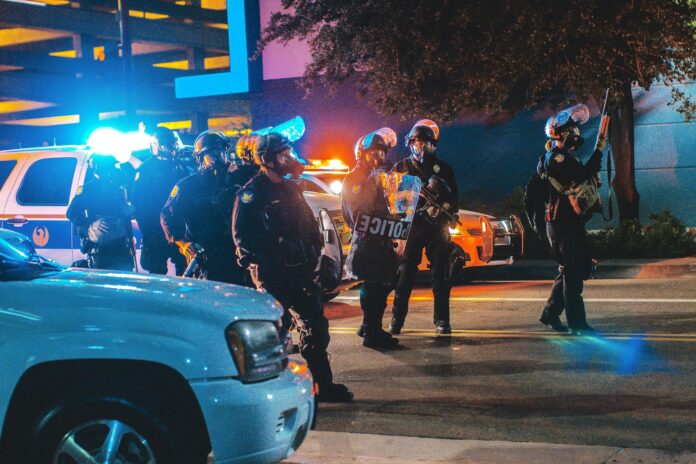While the police are there to protect society by catching and arresting criminals, there are times when the police may act in an unprofessional or unethical way, whether intentionally or not. In some cases, the police may even act illegally. If you are the victim of police misconduct, then it can have a huge impact on your life, and you may be able to take legal action against the police department or the police officer in question.
Experiencing things like discrimination, excessive force, false imprisonment or illegal searches when dealing with the police can all be grounds for a claim. There are also other, murkier areas such as no-knock warrants, which may be legal for the police to carry out but could be grounds for a claim if they are carried out unsafely or cause undue harm to innocent people. If you are dealing with a situation involving any kind of police misconduct, then getting legal advice is the best next step to take. Some of the main areas where there may be grounds for a claim against the police department or officer include:
No-Knock Warrants

While no-knock warrants are legal in many states, the police have a duty of care towards the people at the address and every step should be taken to preserve the safety of innocent people on the scene at the time. When negligence is present, such as the police entering the wrong house on a no-knock warrant or causing injury to persons within the home, then a claim might be possible. A no-knock warrant can be very invasive and therefore is advised to be a last resort option for the police. However, if you feel that the police used a no-knock warrant when they could have gotten the same results from less invasive methods of apprehending you or somebody in your home, then you may want to speak to a law firm that is experienced in this area, such as Romanucci and Blandin.
False Arrest

False arrest is one of the most common types of misconduct that police officers are taken to court for. In this situation, you or somebody in your family may have been arrested by the police without any probable cause for taking this action. It is unlawful for the police to simply stop and arrest anybody on the street without a valid reason and suspicion of them to have or be in the process of committing a crime. It’s important to bear in mind that if you have been arrested due to reasonable suspicion and then later released as an innocent person, this is not the same as a false arrest. Sadly, innocent people are arrested and questioned regularly due to the police having reasonable suspicion to suspect them – for example, if they happen to match the description of a criminal the police are searching for.
Excessive Force

Police brutality or excessive force should never be used by the police. Officers are trained to use a reasonable amount of force and should always prioritize preserving safety and life, even when dealing with a criminal. Even if a police officer needs to draw their weapon and shoot to neutralize a person who has become a dangerous threat, they have a duty of care to provide first aid and ensure that the person receives medical help. If you have been involved in a situation with the police where you feel that the level of force that was used was unnecessary or excessive, then you may have grounds for a claim. It’s always worth speaking to a legal professional about your experience.
Malicious Prosecution

Malicious prosecution is another reason why you may be able to bring a claim against a police department or police officer. Malicious prosecution occurs when you are arrested purely as a result of an officer’s personal feelings towards you, for example, if you have angered a police officer and they arrest you, even if you haven’t actually committed a crime. In this situation, there needs to be no reasonable suspicion or any other reason for the police officer to have arrested you in order for it to be considered malicious prosecution.
How to Prove Police Misconduct

If you believe that the police have acted in an unlawful, unethical or negligent way when dealing with you, then there are several pathways that you can take to prove police misconduct and get compensation. You will need to start by filing a complaint against the police officer, which you can do through their police department. You can also go to a state district court to file criminal charges against the officer if you believe that they have broken the law in the course of their work.
A United States Department of Justice complaint allows you to press criminal charges at the federal level. Or you can take the complaint to your state’s civil court and file a lawsuit to pursue compensatory damages. Depending on the situation, you are able to pursue both civil and criminal charges against an officer at the same time. This will require two different proceedings in different courts.
Gathering Evidence

Police misconduct can be notoriously hard to prove, so there are several things that you can do to improve your chances of success. You will need to preserve evidence as soon as possible after experiencing misconduct. Write a detailed description of what happened including any direct quotes you remember. Take photographs of any injuries that you may have experienced during the situation and seek medical care. Even if you do not think that your injuries are bad enough to warrant it, it’s worth going to a hospital, urgent care center or seeing your doctor to get the injuries on your medical record.
If there are any witnesses to the situation, get their contact evidence and ensure that any physical evidence is kept safe. It’s a good idea to get in touch with a good lawyer who is experienced in this area of law as early as possible.
While most of us trust the police to keep us safe, there are instances where they act wrongfully. If this happens to you, knowing your rights and what you can do next is important.







